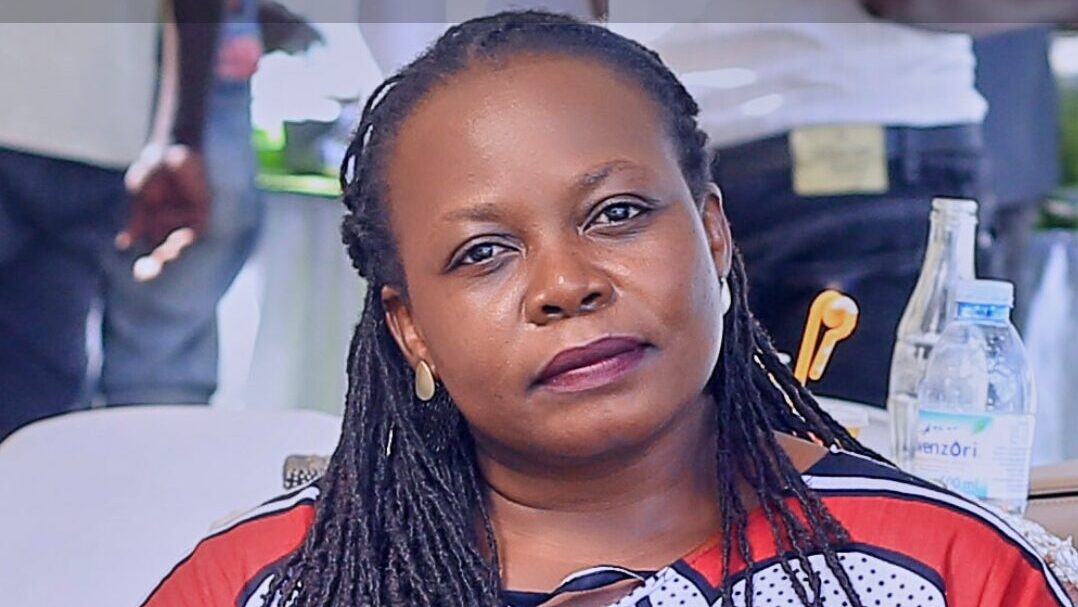Movement Matters #24 – Joanna Mbakulo
In this interview with Joanna Mbakulo, coordinator of MCLD Uganda, we explore her insights on community-led development. Joanna champions the transformative power of community-led initiatives. Read on to hear more about her vision for CLD in Uganda.
Sera Bulbul: How did you get to where you are? What inspires you?
Joanna Mbakulo: My journey with the Movement for Community-led Development began while I was working with The Hunger Project Uganda. I engaged deeply with MCLD through their leadership calls and extensive reading and research to help me understand the Movement.
What truly inspires me about MCLD is the philosophy of community-led development. I believe this paradigm is the answer and I want to help people understand that. If we let people do what they feel they have the potential to do, if we let them make the decisions to issues affecting them, we therefore take part in breaking the cycle of learned helplessness.
Community-led development puts communities at the forefront, granting them the independence to determine the best course of action for themselves. It nurtures self-caring communities that recognize their unique challenges. I equate this to patriotism or to being pan-Africanist. I see it as understanding our strengths and tapping into them, participating and responding in unity.
Sera: Can you share a little bit about how MCLD Uganda has grown?
Joanna Mbakulo: When you like something and are committed to what you are doing, that enthusiasm is contagious. New members are motivated by the energy within the National Association, which has fueled our growth and activity. We rely on the members who continue to exhibit commitment towards robust CLD that firmly respects the perspectives, experiences and knowledge of others. Collaborations with organizations like World Vision, USAID, Right2Grow project have also enhanced our credibility and we look forward to future partnerships.
Sera: What are some of the biggest challenges you face in community-led development, and how do you overcome them?
Joanna Mbakulo: One major challenge is changing the norm from what development has been for over five decades, the top-down approach. Advocating for a fairer shift in power is not a regular walk. Different categories of development actors don’t know how to engage effectively with others for all of us to achieve the much desired change we seek in the development sector. Bridging this gap requires patience and mutual understanding. Change that is destined to last doesn’t happen overnight.
While community-led development has gained popularity, there is still some confusion and hesitancy around it. International organizations often struggle to find their role in this process while CBOs are eager to get involved. Ultimately, it’s about how we find and utilize the strengths in our different capabilities.
Sera: What is your vision for the future of community-led development in Uganda?
Joanna Mbakulo: I envision a future where community-led development is scaled; where different development actors collectively work on changing the rules, policies and practices, and genuinely pursue common objectives. No project should be initiated without equal participation from the community in understanding its scope, cost, objectives, implementation methods and expected outcome.
I hope to see confidently healthy, productive, dignified communities that are able to champion responses to their needs, resilient, and self-reliant.
Sera: How do you see MCLD contributing to that vision?
Joanna Mbakulo: MCLD contributes to my vision simply through scaling community-led development in all sectors. I believe if someone truly understands what community-led development is about, they understand that it centers on strengthening people and not projects or profits.
Sera: What is one piece of advice or guidance you would give an organization starting its journey towards being more community-led and more inclusive?
Joanna Mbakulo: I would advise them to connect with MCLD so that we can share our knowledge and expertise. They can also engage with others who are experienced in these fields as well.
Within MCLD Uganda we do these types of open knowledge sharing sessions from time to time. In fact, we are planning one now for organizations and individuals who are interested in integrating community-led development practices into their programming.
Sera: To close, what are some of MCLD Uganda’s priorities for the next few years?
Joanna Mbakulo: There are four key areas: Advancing localisation and community-led development. CLD research, documentation and knowledge management. Collaborate with like-minded groups. Uplift and engage Community-Based Organizations. The latter have potential. They are low cost, high impact, and in touch with the needs and priorities of communities.
Community based organizations have a valuable place in communities. They are able to reach communities in a way that national and international organizations cannot achieve. They should be our first point of contact for effective development initiatives.


